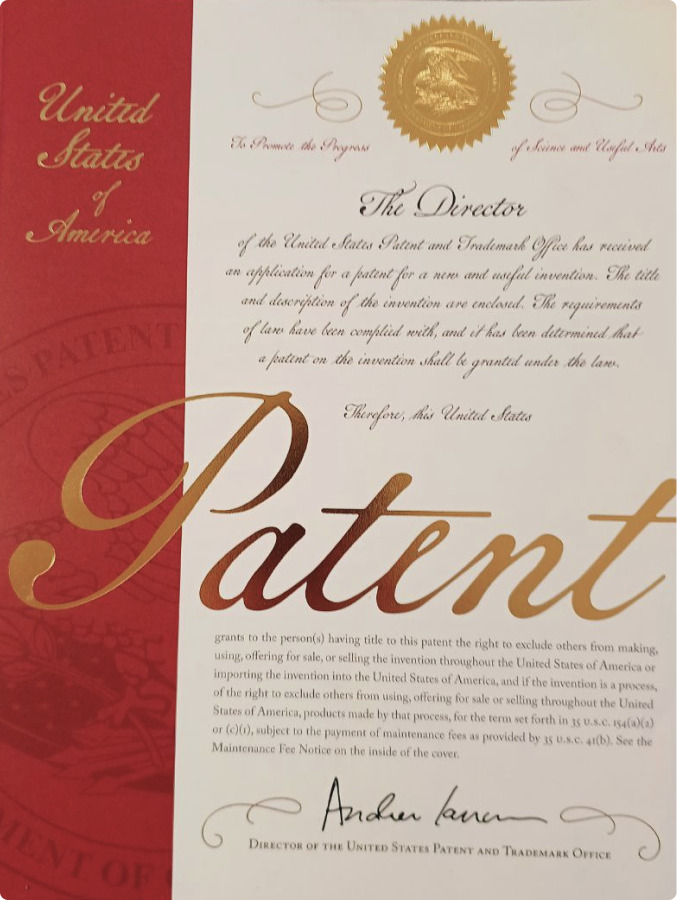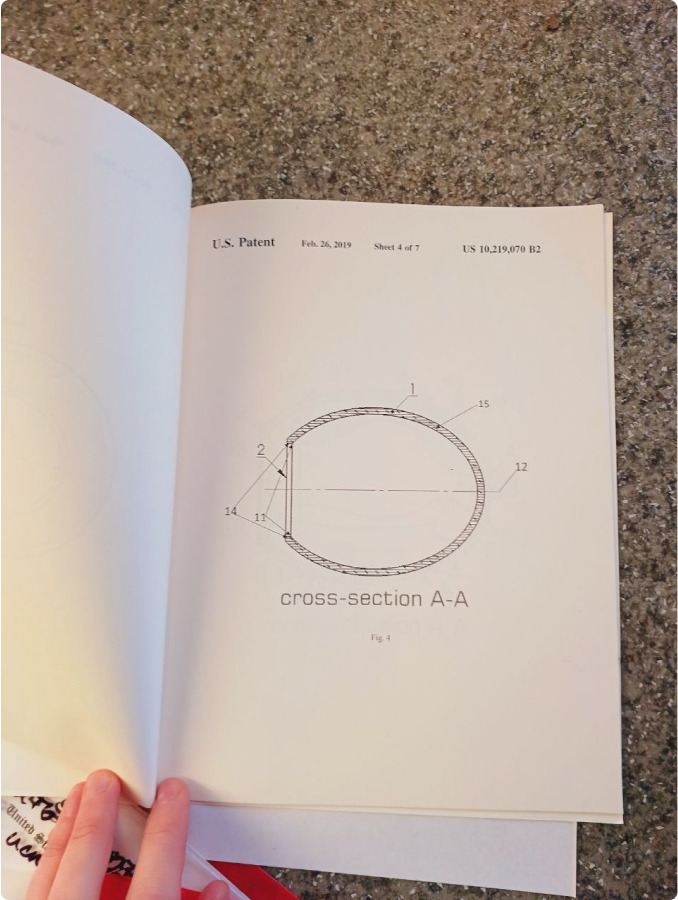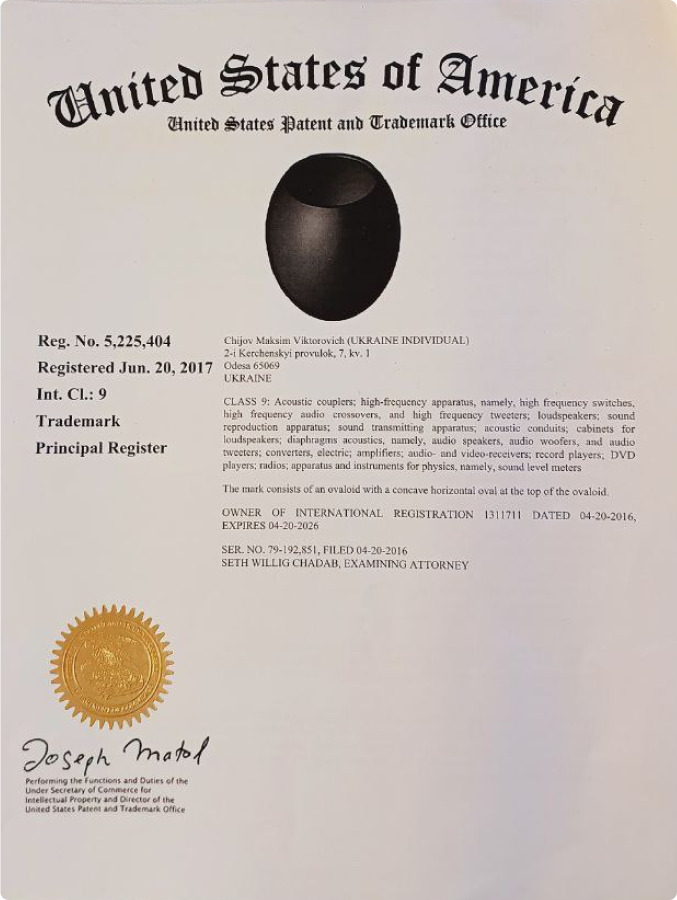Our Technologies

- EE endocarp™ enclosure
- CS concrete sub™
- DSF diffuse sound field
- Hi –DSP hi-density spectral power
- 5-D DS 5-D displacement source
- ODSR omni direct sound radiation
Coconut shells are uniquely strong, lightweight and highly absorbent (resonance) like wood and plywood, thanks to the presence of micropores and longitudinal fibers. It does not introduce changes in frequency response even at extremely high signal power levels.
Endocarp has acquired stony cells, due to its stability in variable environmental conditions - temperature and humidity. And its shape and size are perfectly suited to the creation of speaker systems. After all, it is the midrange that carries 80% of the musical information and is most affected by the speaker cabinet.
The material is unique, but there are also difficulties in its use.1 of more than 2000 nuts, can become a case for a speaker system.
Our primacy in the use of this material is reflected in the invention patents received.
Protected by patents (the use of coconut endocarp for acoustics):
UA89355, US10219070, UA204029, US5225404
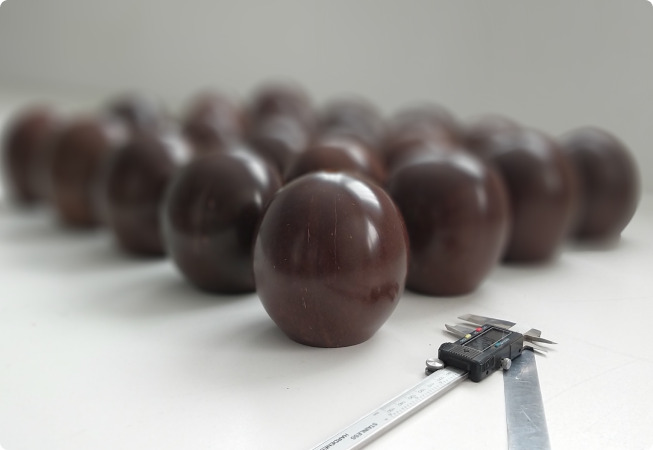
Concrete as the acoustic enclosure in the form of an ovaloid of rotation exhibits the best acoustic properties in the low frequency spectrum - it does not introduce distortion and vibration at the lowest weight-size parameters.
This allowed the use of a heavy-duty loudspeaker with a maximum amplitude of oscillation up to 6 cm, capable of providing a range from 18 Hz. But to keep the sound from losing its dynamics, we use two low-frequency loudspeakers - the "lower bass" and the "upper bass", and the accuracy and quality is ensured by the fact that the enclosure is closed. This is an uncompromising solution, fully revealing the latest speaker and amplifier technology.
The material is not new, but was previously only used for architectural applications. So far, we are the only ones to have realized that this material, in the realization of an oval shaped loudspeaker, is ideal for the low frequency spectrum.
Protected by patents (polymer concrete oval enclosure):
UA33339, US D825530, EU DM/095698, UA & PCT application
Protected by patents (design of acoustic system):
UA37904, Hague application UA & PCT application
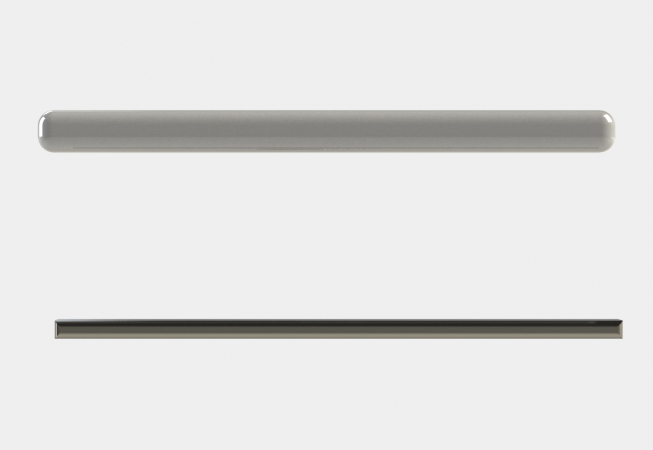
It is known that many differently oriented sound sources create what is known as a diffuse sound field, which is the least susceptible to the negative effects of the room.
The result of our work was the very simple determination that you need a different sized enclosure for each range of playbacks - then it will not affect that sound.
Protected by patents (design of acoustic system):
UA37904, Hague application UA & PCT application
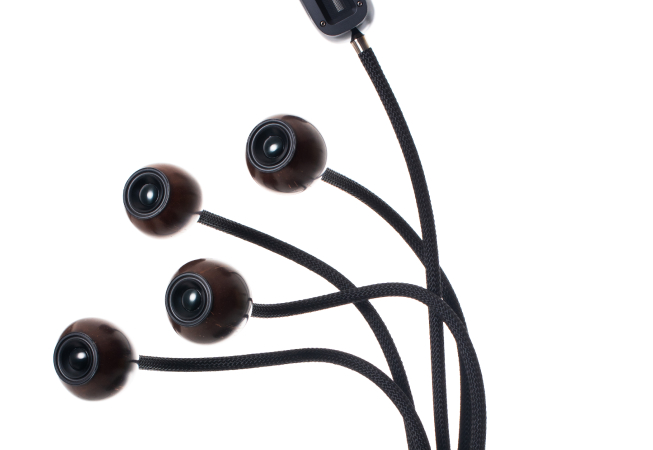
In our systems, we use the best loudspeakers from companies that have perfected the original technology for decades, but we've gone further - by dividing the output signal into four separate frequency bands, each speaker only has to reproduce half of its frequency range.
This means that the speakers operate with an enormous reserve of energy, which keeps intermodulation (combined frequency distortion) to a minimum, even at extreme power levels.
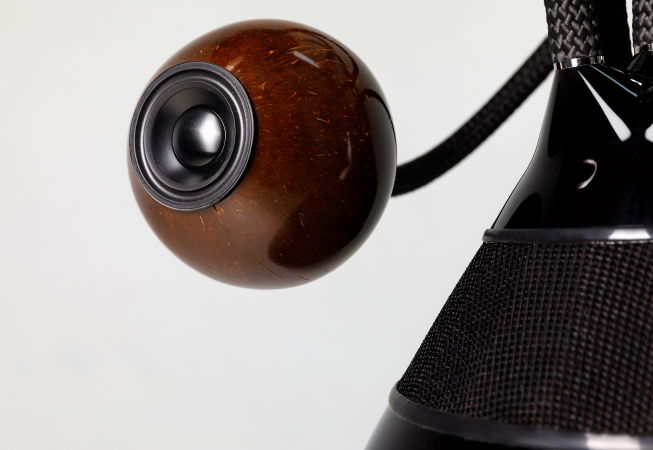
Many loudspeakers in individual enclosures are fixed on high quality flexible holders, which allows on the one hand to easily change their position and orientation, on the other hand guarantees a rigid fixation in space, keeping a static position even at extreme volume levels.
Protected by patents (loudspeaker design):
UA37904, Hague application UA & PCT application
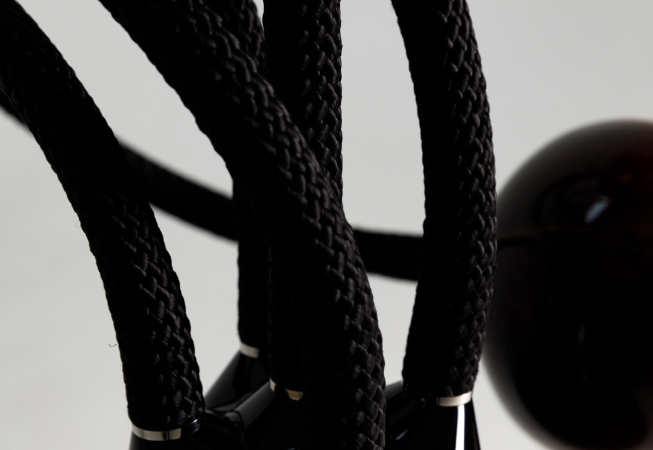
Incredible variety of perceptual effects, the possibility of changing the parameters of the musical scene, is provided by changing the direction of the midrange speakers, realizing the change of the wavefront and countless variants of the organization of reflections.
To ensure correct sound reproduction, in an academic sense, based on the size of the elements of our design, it is important to ensure the correct frequency distribution over the elements of the system.
It took us more than 3 years to achieve fidelity.
We have ensured the consistency of the frequency response of the system - timbre, with the additional ability to simulate a soundstage from classical to individual.
Protected by patents (loudspeaker design):
UA37904, Hague application UA & PCT application
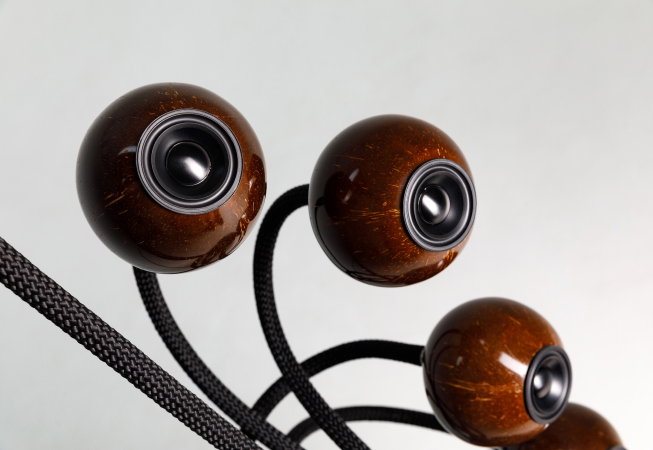
- Loudspeakers in closed cabinets
- Supply voltage levels
- High voltage capacitors
The speaker system uses heavy-duty, high quality loudspeakers in closed cabinets. They need a lot of power and the power supply of the amplifier more than provides that, capable of delivering up to 8 kW of power. Such a power supply does not need to be stabilized, which significantly improves sound quality.
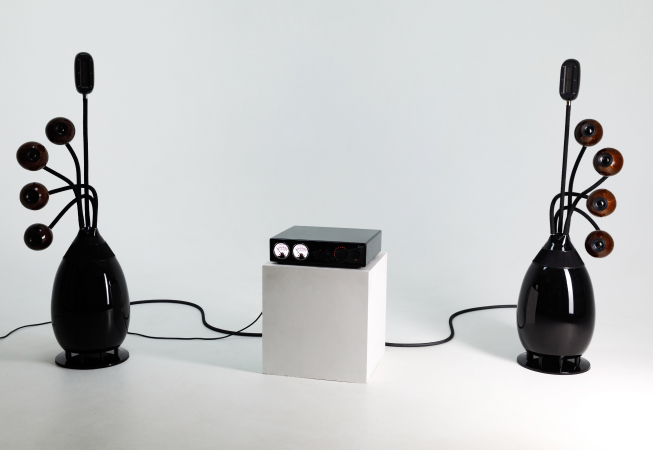
We use the highest levels of supply voltage, providing a maximum signal amplitude of up to 180V - this is the key to the lowest possible distortion and at the same time the maximum dynamic range up to 128 dB.
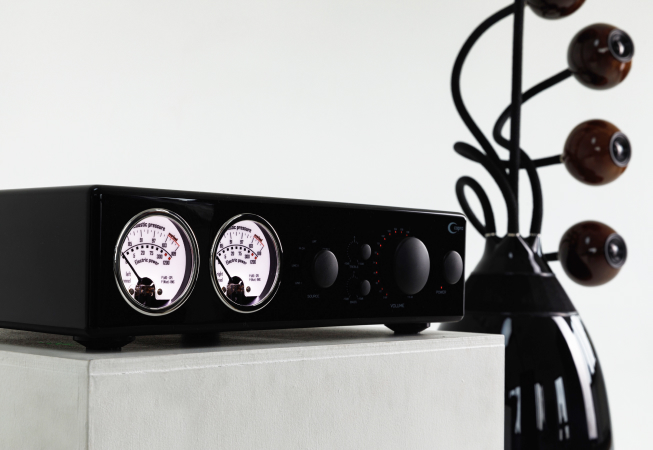
To provide the system with the right amount of pulse energy, we use a large array of high-voltage capacitors with a total energy of over 150 J, which is complemented by four dozen high-quality WIMA capacitors with resistance in thousand ohms, both in the power and filter circuits, individually on each of the eight amplifiers.
Band-to-band amplification is a complete solution, traditionally used for active recording studio monitors.
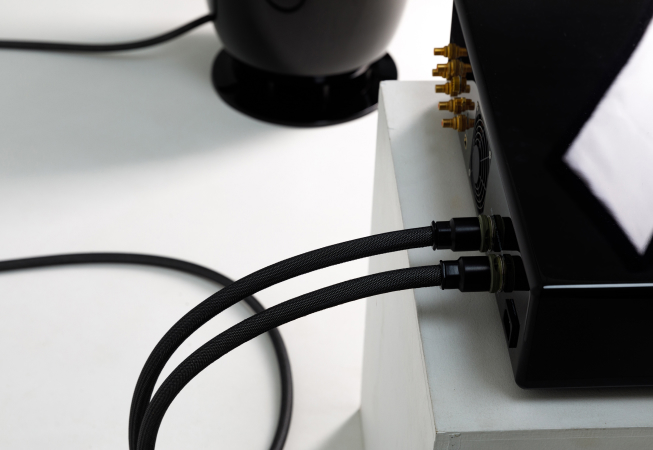
Patents
Oval-shaped polymer concrete - delivers power, depth and dynamics in the smallest size with the highest specific weight and a unique look.
